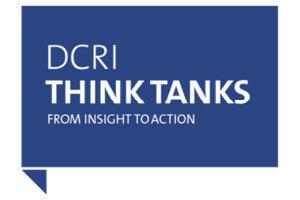
A wide range of stakeholders who attended an April 2019 DCRI Think Tank helped to identify current challenges to developing treatments for chronic kidney disease, as well as make recommendations for strategies to address these challenges.
Innovations that make clinical research and drug development processes more efficient could forge a path for new therapeutics to treat kidney disease, write the authors of a paper recently published in the American Journal of Kidney Diseases.
The paper shares takeaways from an April 2019 DCRI Think Tank, which convened experts from academia and industry, as well as patient advocates and representatives of government agencies, to discuss drug development for kidney disease. Discoveries related to the treatment of chronic kidney disease have historically been stagnant, except for recent findings that SGLT2 inhibitors and select other therapies may delay onset or slow progression of kidney disease.
The think tank, held in Washington, D.C., was chaired by DCRI’s Myles Wolf, MD, MMSc, and Stanford’s Glenn Chertow, MD, MPH, and identified opportunities for improvement at every stage of drug development, from early discovery to implementation into practice.
The paper, which was led by DCRI Think Tank fellow Daniel Edmonston, MD, who is now a faculty member in DCRI’s Nephrology therapeutic area, highlights major barriers to drug development in this area. Contributing barriers include lack of standardized data collection for kidney disease endpoints and fragmented data networks made up of health systems that may use incompatible electronic health records (EHRs).
The Think Tank discussed many different avenues to enhance drug development for chronic kidney disease, including:
- Interconnected data networks that can translate data from different EHRs into a common data model with harmonized data, such as PCORnet, the National Patient-Centered Outcomes Research Network.
- Pragmatic trials, which have wider eligibility criteria and can lead to more generalizable results, which can help new therapeutics become successful if they are able to be administered successfully to a wide population.
- Adaptive trial designs and surrogate endpoints, which can improve the statistical power and feasibility of select clinical trials.
- Patient-centered endpoints, which may improve patient and provider uptake of clinical trial results.
- Standardized data on kidney endpoints from non-kidney trials, which would enable subgroup and secondary analyses that could spur drug development.
Each of these recommendations are strategies to make the research and drug development process more efficient while maintaining scientific rigor.
The DCRI’s Christina Wyatt, MD, also contributed to this DCRI Think Tank and the resulting paper.